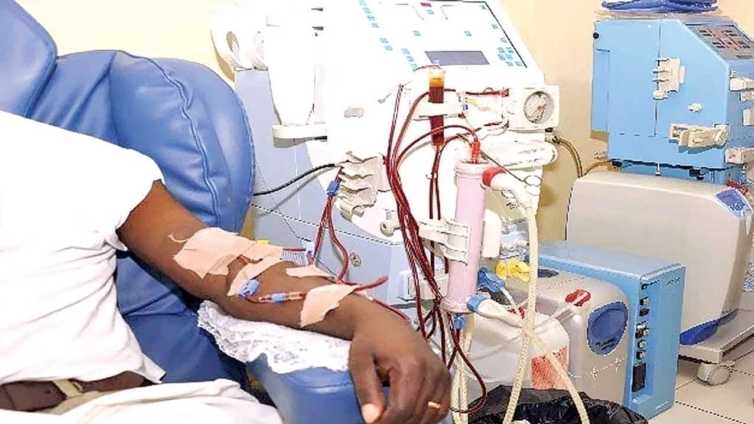The Renal Unit at Korle-Bu Teaching Hospital in Ghana has reopened its dialysis services after a two-week closure due to a critical shortage of essential consumables. This closure forced nearly 200 renal disease patients to seek treatment at private facilities, placing a significant financial burden on them. The resumption of services brings much-needed relief, especially considering the potential life-threatening consequences of interrupted dialysis for these patients. While the immediate crisis has been averted, the recurring nature of these shortages raises serious concerns about the long-term viability of consistent dialysis treatment at the hospital and underscores the need for systemic solutions.
The two-week suspension of services caused significant distress and anxiety among patients who rely on regular dialysis to manage their condition. Dialysis is a life-sustaining treatment for individuals with kidney failure, removing waste products and excess fluid from the blood when the kidneys can no longer perform these functions. Interrupting this treatment can lead to a rapid buildup of toxins in the body, potentially resulting in serious complications and even death. The forced reliance on private dialysis centers presented a substantial financial challenge for many patients, highlighting the disparity in healthcare access and affordability. While emergency services were reportedly available at Korle-Bu during the shutdown, the specifics of these services and their accessibility remain unclear.
The president of the renal disease patient group, Kojo Baffour Ahenkora, expressed relief at the resumption of services, confirming that patients have started receiving calls from the hospital to schedule their dialysis sessions. However, he also voiced apprehension about the possibility of further disruptions, reflecting the patients’ deep-seated anxieties stemming from recurring shortages. Mr. Ahenkora emphasized the urgent need for hospital authorities to address the underlying issues causing these shortages to prevent future disruptions and ensure consistent access to life-saving dialysis treatment. He called for transparency and communication from the hospital, urging authorities to explain the reasons behind the recurring shortages and outline plans to prevent similar situations in the future.
The repeated shortages of consumables at the Renal Unit raise serious questions about the hospital’s resource management, procurement processes, and overall preparedness to provide consistent dialysis services. While the immediate cause of the recent shutdown has been attributed to a lack of consumables, the recurring nature of this problem suggests deeper systemic issues that need urgent attention. The lack of an official statement from the hospital administration regarding the situation further exacerbates the patients’ concerns and adds to the uncertainty surrounding the future of dialysis services at Korle-Bu. This lack of communication fuels distrust and underscores the need for greater transparency and accountability from the hospital management.
The situation at Korle-Bu highlights the broader challenges facing Ghana’s healthcare system, including funding constraints, supply chain issues, and the need for improved infrastructure and resource allocation. The reliance on external funding and the potential for disruptions in the supply chain of essential medical supplies underscore the vulnerability of the system. Addressing these systemic challenges requires a comprehensive approach involving increased government investment in healthcare, strengthened procurement processes, and improved inventory management.
The experiences of the renal disease patients at Korle-Bu serve as a stark reminder of the critical importance of reliable and affordable healthcare services. The recurring disruptions in dialysis services highlight the urgent need for systemic reforms to ensure consistent access to life-saving treatment for all patients. A transparent and accountable approach from hospital authorities, coupled with increased investment in healthcare infrastructure and resources, is essential to prevent future crises and safeguard the well-being of vulnerable patient populations. The situation demands a proactive response from all stakeholders to ensure that the fundamental right to healthcare is upheld for all citizens.














